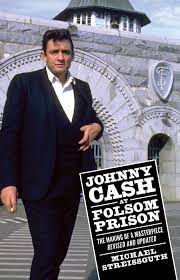On September 1, 1932, New York City was rocked by the resignation of its mayor, James J. Walker. Known for his flamboyant personality and charismatic leadership style, Walker's resignation marked the end of a tumultuous era in New York City politics and left a lasting impact on the city's political landscape.
James J. Walker, often referred to as "Jimmy," was a larger-than-life figure who captured the hearts of New Yorkers with his charm and wit. Elected mayor in 1926, Walker quickly gained popularity for his ability to connect with the working-class citizens and his efforts to improve the city's infrastructure and social services.
However, Walker's tenure was not without controversy. He was known for his lavish lifestyle, associating with wealthy businessmen and entertainers, and was often seen frequenting nightclubs and Broadway shows. His extravagant lifestyle and alleged ties to organized crime led to accusations of corruption and misconduct.
As the Great Depression took hold of the nation in the early 1930s, Walker's administration faced increasing scrutiny. The public grew disillusioned with his perceived indifference to the economic struggles faced by New Yorkers. The media began to investigate his personal and political affairs, uncovering evidence of financial improprieties and unethical behavior.
Facing mounting pressure, Walker decided to resign on September 1, 1932. In a tearful farewell speech, he cited his deteriorating health and the need to protect his family from the ongoing investigations as reasons for stepping down. Walker's resignation marked the end of an era characterized by his charismatic leadership and unorthodox approach to politics.
The resignation of Mayor Walker had a profound impact on New York City's political landscape. It exposed the corruption and ethical lapses that had plagued his administration and highlighted the need for reform. The city's residents demanded a new era of transparency and accountability in government.
Following Walker's resignation, the city turned to a new political figure, Fiorello H. La Guardia, who was elected mayor in 1933. La Guardia, a reform-minded Republican, sought to clean up city government, crack down on corruption, and restore public trust. His administration implemented various reforms, including the creation of the city's first ethics commission and the establishment of a merit-based civil service system.
The resignation of James J. Walker also had broader implications beyond New York City. It served as a cautionary tale about the dangers of political corruption and the importance of holding elected officials accountable. Walker's downfall became a symbol of the excesses and moral failings of the Jazz Age and contributed to a nationwide push for political and social reform.
Despite his controversial legacy, James J. Walker left an indelible mark on New York City. His charismatic leadership style and commitment to public service endeared him to many New Yorkers. His resignation prompted a period of introspection and reform, ultimately leading to a more transparent and accountable city government.
September 1, 1932, will be remembered as the day New York City bid farewell to Mayor James J. Walker. His resignation marked the end of a chapter in the city's political history and set the stage for a new era of reform and accountability. The lessons learned from Walker's tenure continue to shape the city's political landscape, emphasizing the importance of integrity and ethical leadership in public office.






